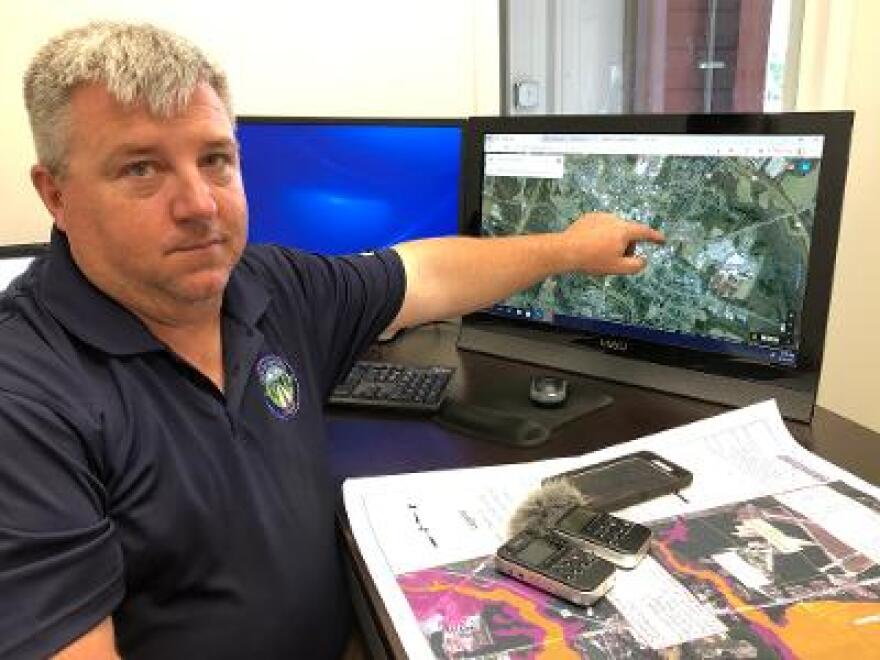As Congress moves toward approval of a bill to rebuild roads, bridges and water systems in this country, the nation’s civil engineers are calling for billions of dollars to repair aging dams.
Sandy Hausman reports on four in Virginia that could pose risks to the public.
It was just over a year ago that two dams in Midland, Michigan, failed -- flooding whole neighborhoods and forcing thousands from their homes.
The disaster fascinated freelance reporter James Dinneen who was relieved to learn that a chemical plant in the area was spared. Had its storage pond been breached, dangerous pollution could have spread far and wide. Dinneen wondered if something like that could happen elsewhere, so he and a colleague – Alexander Kennedy – got a grant to find out.
Step one – get a list of dams from the Army Corps of Engineers. “There are more than 90,000 dams, and then the EPA keeps lists of all the hazardous waste sites they regulate,” Dinneen notes
There were about 5,000 of them, so the two narrowed their search to so-called high-hazard dams. “High hazard only means that if the dam were to fail it would likely cause loss of human life, and then we looked on maps to see where dams were six miles away from those hazardous waste sites.”
Finally, they limited their study to dams over 50 years old. There were four in Virginia -- Carvins Cove just north of Roanoke, Philpott in Franklin County, Claytor just south of Radford and Emporia in Greensville County on the Meherrin River. Built 113 years ago, it was the oldest of the dams.
“It is certainly old," Mike Rae admits, "and we would love to get some work done on it, but we’re not afraid of that dam, and no one else should be either.”
Rae is Emergency Services and Risk Management Coordinator for Emporia – a city of about 5,400 people. When he first took the job, he was concerned about the safety of the dam which is managed by an international hydro-electric producer, but Rae says he no longer worries. “I review all the paperwork. I sign off on it, and when they inspect it I actually show up, and I learn something every time I go there, because I’m not an engineer type, but I go to sleep at night knowing that dam is safe. There are many dams in the state that draw a lot of concern. This is not one of them.”

He adds that the city has a contingency plan to evacuate as many as 3,500 residents if it looks like the dam might give way, but he admits there are uncertainties. “It’s a plan. Nobody wants to execute it, and we couldn’t tell you whether it would work or not, because it’s kind of like when COVID came. Nobody expected it.”
And he’s not sure what toxic materials might still be on site at an abandoned foundry near the dam. In the event of a 200-year flood, Rae says that area could be underwater.
Experts say heavy rainfall is more likely in this age of climate change, and journalist James Dinneen says dry weather could accelerate decay of dams. “An increased frequency of drought can speed the rate at which concrete is dried and speed the rate at which it cracks," Dinneen says.
All of which suggests a need for more federal money to maintain the nation’s dams. “I know last year there was a mere ten million dollars put towards dam restoration by the federal government," according to Dinneen, "which one civil engineer told me is just a drop in the bucket.”
The Director of Dam Safety in Virginia says the Commonwealth relies on dam owners to conduct their own inspections, and funding for regulation and maintenance of dams here is “inadequate.” She notes the American Society of Civil Engineers awarded U.S. dams a grade of D on its latest report card.
This report, provided by Virginia Public Radio, was made possible with support from the Virginia Education Association.


